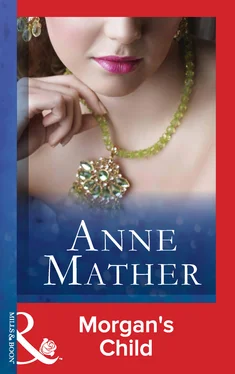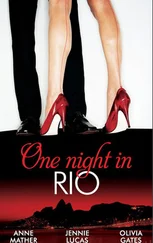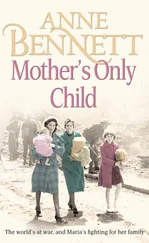He scowled.
He couldn’t answer any of these questions. His release had not been the cause for celebration he’d imagined it would be. Would he ever be able to absorb his changing circumstances? Would he ever come to terms with the fact that life had moved on?
But it wasn’t just his changing circumstances that was giving him such a sense of anticlimax now. It was more than that; he had the uneasy suspicion that no one wanted him here. Was he a welcome face or just an embarrassment? Would it have been easier for everyone—his wife particularly—if he had been as dead as they’d believed?
Dead!
For the past four years, everyone had thought he’d died in the inferno they’d made of his car. They’d mourned him; they’d even held a memorial service for him, according to his mother, and a stone had been erected in the churchyard at Tudor Cross.
His scowl deepened. Had she thought he’d be pleased to hear that? he wondered. Had she no conception of how it made him feel? He wasn’t dead; he was alive; he didn’t want to hear about his funeral service. But most of all he didn’t want to feel like an outsider, especially with his wife.
His wife!
His lips twisted. He wasn’t sure he knew his wife any more. The alien confrontation they’d had the previous afternoon had left him feeling more confused than ever. He’d expected their meeting to be strained, yes, but not that she’d act like a stranger. And a stranger, moreover, who didn’t like him very much either.
He swore, finding a certain satisfaction in hearing the oath leave his tongue. God, he’d never thought it would be easy, but he’d had no conception of just how hard it had proved to be.
Of course, his parents had been present at the time, and it was possible she’d been inhibited by their demands. His mother, particularly, had asked a lot of questions, and Fliss had behaved as if only the older woman had had that right.
His appearance couldn’t have helped, he acknowledged. His shaved head—to remove any infestation of lice—and several days’ growth of beard on his chin must have looked strange. He looked like a savage, and even though he’d shaved his beard since it wasn’t much of an improvement. His hand had been shaking so much when he used the razor that his chin was now covered in cuts.
He supposed he was thinner, too, though that was less of a problem. He’d soon put on weight once he started eating normally again. And his muscles were hard from the physical regime he’d set himself. Apart from its obvious advantages, keeping fit had been another way of keeping sane.
But, dammit, he hadn’t been prepared for civilisation. Four years of living with a rebel army had taken their toll. Someone should have warned his wife that he wasn’t the man he used to be. He’d seen too many horrific sights, too much killing, to ever view his own life in quite the same way again.
He hunched his shoulders. They’d warned him, of course. Mdola, at first, and afterwards the British authorities in Lagos: they’d all tried to tell him that returning home after so long an absence was bound to cause problems he couldn’t foresee. It was going to take time to adapt, for him and for his family. That was why they’d brought him here to the air base at Craythorpe, for expert counselling. They wanted to assess his state of mind; make sure he was fit to live with normal people again.
He snorted. Mdola wouldn’t like that, he reflected. So far as he was concerned, it was the West who had been crazy for supporting Ungave’s regime. President Mdola now, Morgan thought, still finding the concept incredible. But he was happy for his friend, and proud of the victory he’d achieved.
Even if it bad screwed up his own life, he conceded. But then, he hadn’t known what was facing him when he’d left England. A normal life, he mused. What the hell was normal? If Fliss’s reaction was anything to go by, he wasn’t sure he wanted to know.
And it was the knowledge that there had been no real communication between him and his wife that was causing him so much soul-searching now. The truth was, he supposed, that Fliss’s attitude had struck at the core of his manhood. Her apathy had made him doubt whether he was still a man.
As if he didn’t have enough doubts of his own.
It was stupid, he knew, to allow her behaviour to affect him. Fliss was still in a state of shock; he’d seen that right away. It was ironic, really, because he’d had doubts about his own feelings. He’d even convinced himself at times that he didn’t have feelings any more.
Now, all he could think of was, what had she been doing while she’d thought he was dead? It occurred to him that she might even have got married again. God, was that why she’d been so reticent the day before? Because she didn’t know how to tell him the truth?
He realised now that secretly he’d always believed she’d be there waiting for him. That he’d harboured the thought that what they’d had had been so special, she’d never seek consolation in the arms of another man. But the woman he’d met the previous afternoon had behaved as if they were merely distant acquaintances. Had she been wearing his ring? He couldn’t even remember if she had.
A group of servicemen crossed the parade ground outside at that moment, and Morgan drew back into the shadows of the room, loath to be observed gazing out. The men glanced his way and he guessed his arrival had caused quite an upheaval. The base wasn’t large and it wasn’t every day they entertained a psycho like him.
He raked unsteady hands over his scalp, feeling the strange prickle of stubble beneath his palms. Once his hair grew back, he’d look less like a gorilla. He might even feel less like one, too, he thought, expelling a weary breath.
Apparently, there was a band of cameramen and media people camped outside the gates of the air base. He wondered if his mother had told him that to compensate for what she’d said about his memorial stone. In any event, all it had done was make him feel even more of a misfit He didn’t like the thought that they were waiting, like jackals, to attack.
He turned back into the room, surveying its bright interior without enthusiasm. The room was comfortable and warm, but impersonal. It was part of the medical facility here at the base and although it was furnished as a sitting room it was just another hospital room.
There was only one familiar item in the room and that was the picture his mother had brought of his and Fliss’s wedding. It showed himself and his wife and his parents, a group photograph taken outside the small church at Tudor Cross. He and Fliss had been married from his parents’ home because Fliss’s parents couldn’t be present. Her father had been killed when she was still at college, and her mother had married again soon afterwards and gone to live in the United States.
They’d been so happy on that day, he thought painfully. They’d been living together for over a year, but they’d both wanted to make that commitment, and they’d been sure their marriage would last. Of course, she hadn’t wanted him to go away, but that had been their only real quarrel. He’d had every intention of making it up to her when he got back.
When he got back...
The thought stuck unpleasantly in his throat, and, putting it aside, he concentrated on his parents’ images instead. They had aged in the last four years, he conceded. His father was quite grey now, yet when this photograph was taken his hair had been a lighter shade of ash than his son’s.
Though God knew what colour his hair would be when it grew back, Morgan reflected impatiently. The way he was feeling now, it should be white. Only Fliss didn’t look any different from what he remembered. She’d let her hair grow, of course, but apart from that she didn’t seem to have changed.
Читать дальше












